"When we are in our own country, we endure whatever comes our way; the crucial thing is that we live here as Armenians, bread and hunger, though difficult, are not the primary focus." [Blockade from the Inside]
As I write this article, I am situated 328 km away from Stepanakert, the capital of Artsakh. From here to Rome, the distance is incredibly vast and beyond measure. I could travel to Rome, a place where fewer individuals share my memories compared to Stepanakert. However, the route to Artsakh, only 328 km away, has been inaccessible for over seven months now. Artsakh is under blockade. However, it's not just Artsakh; the roads aren't blocked solely in their direction. The roads are obstructed for us as well. Why is it possible for me to travel to Rome but not to Stepanakert? Maybe if I were in Artsakh now, my heart would feel more at ease. However, this is not my story. This short piece is about my colleague, Tatevik Aghajanyan, who resides in Stepanakert, as well as to all those living in Artsakh, who steadfastly uphold the principle of self-determination.
Tatevik Aghajanyan hails from the Khnushinak village, Martuni region, and currently resides in Stepanakert. The blockade weighs even heavier here than in the villages, as at least there people can cultivate gardens and obtain a modest harvest. Amidst the challenges of daily life and living conditions, there is an added layer of sadness stemming from being separated from loved ones. For over a month, Tatevik has been unable to visit her hometown due to the lack of transportation and fuel. Even when vehicles have managed to arrive from the village recently, it was risky to travel back to village with them: what if they would completely run out of fuel. My interlocutor works and lives in Stepanakert.
A handful of berries from the village
Communication issues are also prevalent in Artsakh. Maintaining communication with relatives through phone calls is not always feasible. Power outages not only impact electricity but also lead to issues with water supply. "Water pumps struggle to keep up with pumping water, resulting in periodic interruptions in the water supply. This happened after the war as well. The children come down to take water from the fountain in small bowls," sahres Tatevik, whose journalistic perspective has keenly observed numerous events unfolding outside.
While the blockade weighs heavily on the people, Tatevik is confident that the people in Artsakh are resilient and steadfast. It is just the scenes that are hard to witness.
"I was deeply moved when I saw a woman with tears in her eyes, observing the people waiting in line for bread. It's unfortunate that people have to wait for hours just to get a piece of bread," says Tatevik, noting that many choose not to go for bread, as waiting in line for hours under the scorching sun is incredibly challenging.
"It's somewhat easier for me to manage without bread since I'm alone and there are no children at home. If there's no bread for a day, I don't consider it a major issue for us. However, for those with multiple children at home, it's extremely challenging... Especially for those residing in Stepanakert, as they are unable to receive food supplies from the villages. I do not know how much longer this can last."
Prior to the complete blockade, people were provided with coupons for purchasing goods, which have now become obsolete in the face of scarcity
Tatevik believes that people have become more attentive to one another now. "One of my co-workers got sick, and despite everyone being aware of the scarcity in the shops, everyone brought something from home to give to her. They understand that there's insufficient food at her home as well," Tatevik shares.
There are no flowers anymore so people gather what they have that can be of help and give one another.
The "bouquet" for Tatevik's Birthday
Questions and discussions regarding medicines, proper nutrition, and essential supplies are becoming repetitive. The response remains consistent - there are none. So I ask Tatevik: what empowers you to persevere through these challenges? "I cannot living anywhere else. While in our own country, we endure. We will persist as much as we can. The crucial aspect is that we live here as Armenians; bread and hunger, though difficult, are not the primary focus," Tatevik responds with conviction.
Since December 12, 2022, Azerbaijan has closed the only road connecting Artsakh to Armenia, the Lachin Corridor. On April 23, 2023, the Azerbaijani side closed the Hakari bridge on the Artsakh-Armenia border, which was in the area of responsibility of the Russian peacekeeping troops in the Lachin corridor, thus deepening the humanitarian crisis. An Azerbaijani checkpoint was installed on the Hakari bridge. Since June 15 of this year, Azerbaijan has banned all humanitarian transportation through the Lachin Corridor. After that, the ICRC was only able to transport patients to Armenia a few times.
On July 29, Azerbaijan kidnapped a 68-year-old citizen from the ICRC-mediated patient who was transferred to Armenia from the checkpoint near the Hakari bridge and took him to an unknown place. On August 1, Azerbaijani servicemen kidnapped another citizen who tried to go to Armenia on foot from the village of Hin Shen in Artsakh, his whereabouts are also unknown.
Artsakh has almost completely run out of essential products and medicine. Coupons intended for buying food months ago are now useless because the stores are empty. People go out only to get bread. Artsakh has run out of fuel, public transport does not work at all, and private cars rarely move. The gas supply is regularly interrupted, and electricity is cut off. In Artsakh, 120 thousand people, including 30 thousand children, are under total blockade.
The photos are from Tatevik Aghajanyan's archive
Hayarpi Baghdasaryan
18:17 - 06 August, 2023


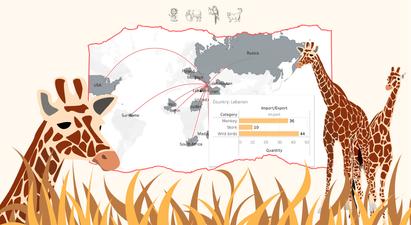
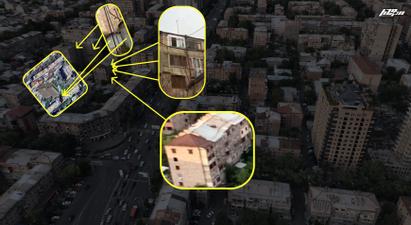
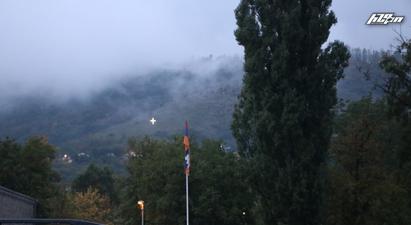
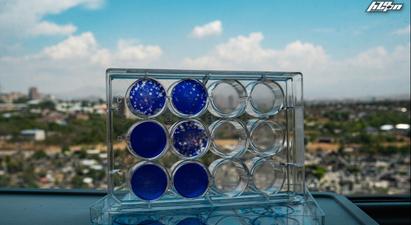
!["I don't want my children to starve, to be subjected to genocide, I want to live in Artsakh, to build our Homeland" [Blockade from the inside]](https://cdn.infocom.am/enlarge?file=2023-08-10-4865f192-ab13-4e84-beab-6232fbca7831.jpg&type=jpeg&width=411&height=225)
!["It's truly unbearable to be captive on your own land; everyone wants to live, yet the possibility of life is uncertain" [Blockade From The Inside]](https://cdn.infocom.am/enlarge?file=2023-08-07-4da13b91-9ae8-4497-a322-a6173bea598d.jpg&type=jpeg&width=411&height=225)
![A mother of five from Artsakh prepares sweets using the last remaining ingredients at home and shares them with neighboring children. [Blockade from the inside]](https://cdn.infocom.am/enlarge?file=2023-08-07-a38344bf-93f4-46f3-be0d-27ad2e27cf27.jpg&type=jpeg&width=411&height=225)
!["When we are in our own country, we endure whatever comes our way; the crucial thing is that we live here as Armenians, bread and hunger, though difficult, are not the primary focus." [Blockade from the Inside]](https://cdn.infocom.am/enlarge?file=2023-08-05-465609c7-c0fd-42d2-9db7-2a568a7428a5.jpg&type=jpeg&width=411&height=225)
!["I will sleep hungry, I won't even eat sweets, but in exchange, I expect to live in my motherland, Artsakh" [Blockade from the inside]](https://cdn.infocom.am/enlarge?file=2023-08-05-ab9a84b3-3f5e-4bcd-b049-5e8660312ed8.jpg&type=jpeg&width=411&height=225)
!["The fact of Artsakh not being part of Azerbaijan is of greater importance than concerns about food." [Blockade from the inside]](https://cdn.infocom.am/enlarge?file=2023-08-04-3e113b85-6b81-4589-b241-11323a00de2b.jpg&type=jpeg&width=411&height=225)
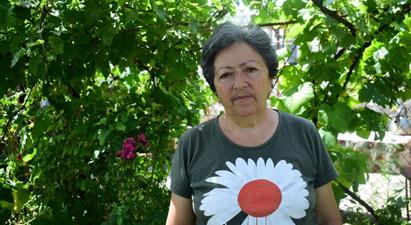
!["My grandmother has cancer, we can't get her to Stepanakert, and we have run out of medicine" [Blockade from the inside]](https://cdn.infocom.am/enlarge?file=2023-08-03-32b100fc-3234-4640-b2bd-612cbae24c2c.jpg&type=jpeg&width=411&height=225)
![Surviving Adversity. Anush Andryan's Family Confronts Blockade, Malnourishment, and the Fear of Their Child's Cancer Reactivation [Blockade from the Inside]](https://cdn.infocom.am/enlarge?file=2023-08-03-567930d9-1ffd-45e5-913a-1201cc9313ad.jpg&type=jpeg&width=411&height=225)
!["As the queue reached me, the bread had already run out. I bought watermelon to eat instead of bread" [Blockade from the inside]](https://cdn.infocom.am/enlarge?file=2023-08-02-de18cd9a-2a7e-4502-8603-cff3d45231fe.jpg&type=jpeg&width=411&height=225)